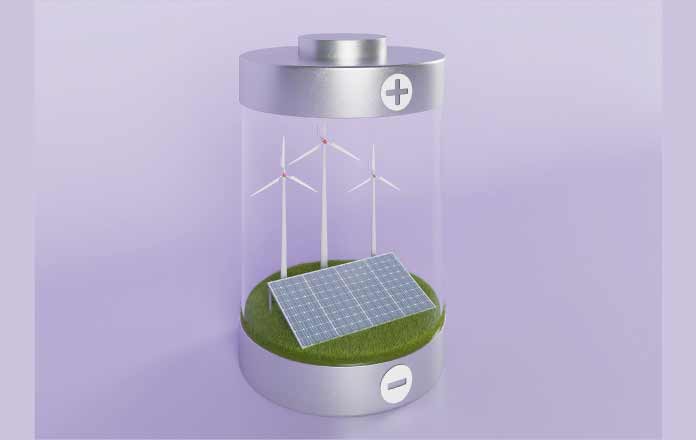The energy landscape has significantly transformed in pursuing a sustainable future, with a growing focus on harnessing renewable sources. Among these, solar energy is a good solution for the world’s increasing power demands. As solar technology advances, the need for adequate energy storage becomes essential. Smart storage systems have emerged as a key player in optimizing solar energy utilization, the way for a brighter and more sustainable future.
The Need for Smart Storage
The intermittent nature of solar power generation challenges its general adoption. Solar energy production is contingent upon weather conditions and daylight availability, leading to fluctuations in power generation. Traditional energy storage solutions, such as batteries, have played a role in mitigating this issue. Still, the need for more intelligent and efficient systems has become apparent.
Smart storage addresses the limitations of conventional storage methods by incorporating advanced technologies like artificial intelligence and machine learning. These systems analyze patterns of energy consumption, weather forecasts, and user behaviour to optimize energy storage and distribution. The result is a more reliable and adaptable energy storage solution that enhances the efficiency of solar power systems.
Evolution of Solar Energy Storage
The evolution of solar energy storage can be traced back to the early days of solar power integration. Basic battery systems are utilized to store excess energy for later use. However, these systems needed more sophistication and adaptation to renewable energy generation’s dynamic nature.
As technology progressed, integrating smart sensors and communication technologies became prevalent. These enhancements allowed for real-time energy production and consumption monitoring on energy storage and distribution. The evolution continued with the incorporation of data analytics, allowing for predictive modelling and optimization.
The advent of artificial intelligence marked a significant turning point in solar energy storage. AI algorithms can now analyze vast amounts of data, learning from patterns and continuously optimizing energy storage strategies. This intelligence enables smart storage systems to anticipate energy demand, weather patterns, and other factors, ensuring an efficient and reliable power supply.
Smart Storage Solutions
Several smart storage solutions have emerged to effectively address the challenges of solar energy storage. One notable example is the use of advanced battery technologies. Lithium-ion batteries have seen substantial improvements, offering higher energy density, faster charging capabilities, and longer lifespan.
Energy management systems powered by artificial intelligence play a key role in optimizing the performance of smart storage solutions. These systems continuously analyze data from various sources, adjusting energy storage parameters in real-time. This results in increased energy efficiency, reduced waste, and improved system reliability.
Another innovative solution involves the integration of smart grids. Smart grids enable seamless communication between various energy infrastructure components, including solar panels, storage systems, and consumer devices. This interconnected network allows for better coordination and energy distribution, optimizing the use of solar power on a larger scale.
The Future of Solar Energy
As smart storage solutions continue to evolve, the future of solar energy appears increasingly promising. Integrating emerging technologies such as solid-state batteries, advanced materials, and decentralized energy grids can revolutionize the solar energy landscape.
Solid-state batteries are poised to replace traditional lithium-ion batteries with higher energy density and improved safety features, offering more efficient and durable energy storage. Advanced materials, such as perovskite solar cells, also make waves, providing a cost-effective alternative to traditional silicon-based solar panels.
Decentralized energy grids, enabled by smart storage and digital technologies, empower communities to generate, store, and distribute their energy locally. This enhances energy resilience and reduces dependence on centralized power sources, fostering a more sustainable and democratic energy ecosystem.
Concluding
The evolution of solar energy storage, propelled by integrating smart storage solutions, is ushering in a new era of sustainability and efficiency. As we continue to confront the challenges of climate change and strive for a cleaner, greener future, the role of solar power, supported by intelligent storage systems, becomes increasingly vital.
The need for smart storage is not merely a technological luxury but a necessity for a reliable and resilient energy infrastructure. The continuous advancements in AI, battery technologies, and smart grid systems pave the way for a future where solar energy is not just a supplemental power source but a primary contributor to our energy needs.
In conclusion, the marriage of solar energy and smart storage is a beacon of hope for a brighter, more sustainable future. As we witness the evolution of solar energy storage, we move closer to a world where clean and abundant energy is harnessed intelligently, paving the way for a future powered by the sun.



